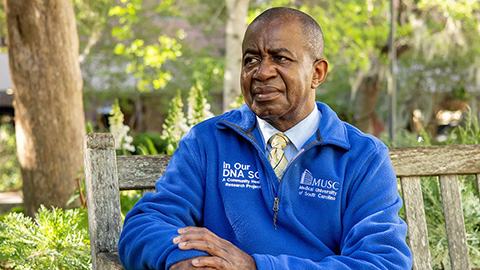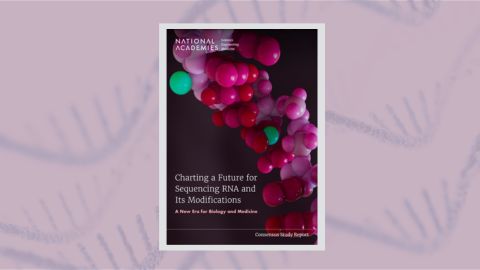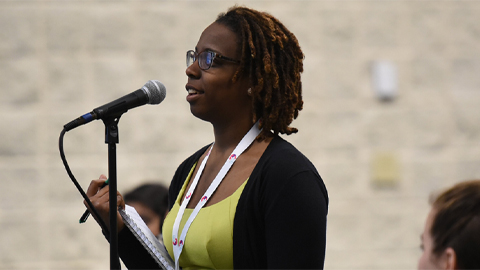Funding agencies relax rules amid pandemic
In the midst of the COVID-19 public health emergency, federal agencies have been issuing guidances and making policy changes to inform and accommodate scientists through this difficult time. The roundup below has the need-to-know information for scientists who receive federal grant funding or scientists in the process of applying for federal grants for three agencies: the National Institutes of Health, the National Science Foundation and the Department of Energy.
What you need to know about the NIH
The NIH has made a number of announcements about grant proposals, animal care, study sections and COVID-19-related funding opportunities.
For prospective grant applicants
- The agency will accommodate late applications submitted through May 1.
- If a prospective grant applicant cannot submit an application by the due date because they have been quarantined, they must submit a cover letter with their application explaining the situation.
- The agency will evaluate each late application on a case-by-case basis.
- Prior approval is not needed.
- If a prospective grant applicant cannot submit an application to the NIH because their institution is closed due to the pandemic, they must submit an application as soon as their institutions reopens and must include a cover letter with the application.
For grant recipients
- A recipients can extend the final budget period of their approved projects for 12 months past the original completion date.
- Recipients of a NIH-funded conference or travel award (where the conference has been canceled must contact their program official for next steps
- The NIH is allowing grant recipients to start using award money before the official start date of the award if the grant recipient has been affected by COVID-19
- Costs can be charged to the NIH award from January 20, 2020 through the public health emergency period
- If a grant recipient cannot submit a financial report by the scheduled due date, they need to contact their program official and let them know
- Grant recipients who are not under the Streamlined Non-competing Application Process
- If you are a grant recipient and your organization is paying for salaries and benefits when no work is being done because of COVID-19, then as the grant recipient you can use the grant for salaries and benefits when no work is being done
- The NIH may later request documentation to confirm your institution’s policies
- Grant recipient organizations who may be closed or whose fellows and trainees can’t work because of COVID-19 can continue providing stipend payments to fellows and trainers
- But they must notify the assigned grants management official and provide documentation demonstrating the effect of COVID-19
- If a grant recipient had grant-related travel that has been charged to the NIH grant award or would have been charged to the NIH grant award but it was cancelled, the grant recipient can still charge it to the NIH grant award
- If a grant recipient cannot submit required reports to the NIH, they must give notice to the NIH and it cannot be delayed more than a year
The NIH also has COVID-19-related funding opportunities and a frequently asked questions page. See the main landing page and the FAQ on COVID-19 flexibilities for applicants and recipients.
The individual NIH notices can be found on their main page.
What you need to know about the NSF
The National Science Foundation issued announcements and guidance about grants and deadlines and posted answers to frequently asked questions.
For grant recipients
- Recipients can continue to charge salaries, stipends and benefits on active awards.
- Recipients can charge other costs necessary to the active award to resume research activities after the public health emergency if needed.
- Costs related to the cancellation of events, travel or other activities can be charged to the award.
- The due date has been extended by 30 days for all final project reports originally due between March 1 and April 30.
Also note that SAM (System for Award Management) registrations expiring before May 16 will be automatically extended for 60 days.
See the landing page and a letter to the community regarding COVID-19. All COVID-related deadline adjustments can be found here.
What you need to know about the Department of Energy
The DOE released a guidance with the following administrative flexibilities:
- SAM (System for Award Management) registrations expiring before May 16 will be automatically extended for 60 days.
- The agency will determine if application due date extensions are needed on a case-by-case basis.
- Grant recipients are authorized to continue to charge salaries, stipends and benefits to currently active DOE awards.
The DOE’s Office of Science also released this letter about the scientific infrastructure available to researchers. It says, in part, "Through its user facilities, computational power, and enabling infrastructure, DOE has unique capabilities that the scientific community may leverage for the COVID-19 response and recovery.”
Impact of COVID-19 on minority health and health disparities
The National Institute on Minority Health and Health Disparities issued a notice of special interest this week "to highlight the urgent need for research on the impact of the novel coronavirus (SARS-CoV-2) pandemic causing COVID-19 disease outbreaks and the resulting disruptions on individual and social well-being, health services use, and health outcomes for NIH-designated health disparity populations." See the notice.
Enjoy reading ASBMB Today?
Become a member to receive the print edition monthly and the digital edition weekly.
Learn moreGet the latest from ASBMB Today
Enter your email address, and we’ll send you a weekly email with recent articles, interviews and more.
Latest in Policy
Policy highlights or most popular articles

Genetics studies have a diversity problem that researchers struggle to fix
Researchers in South Carolina are trying to build a DNA database to better understand how genetics affects health risks. But they’re struggling to recruit enough Black participants.

National Academies propose initiative to sequence all RNA molecules
Unlocking the epitranscriptome could transform health, medicine, agriculture, energy and national security.

ATP delegates push for improved policies
This ASBMB program helps advocates gain skills to address issues that affect science and scientists.

Advocacy workshops at Discover BMB 2024
Topics include running for office, becoming an advocate, and navigating the grant review process at the NIH.

NIH’s advisory committee releases report on re-envisioning postdoc training
The working group developed six primary recommendations for the National Institutes of Health.

When authoritative sources hold onto bad data
A legal scholar explains the need for government databases to retract information.

